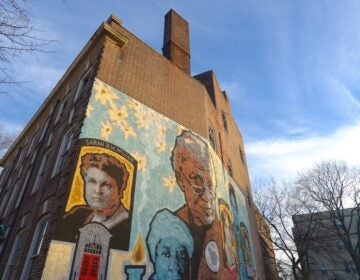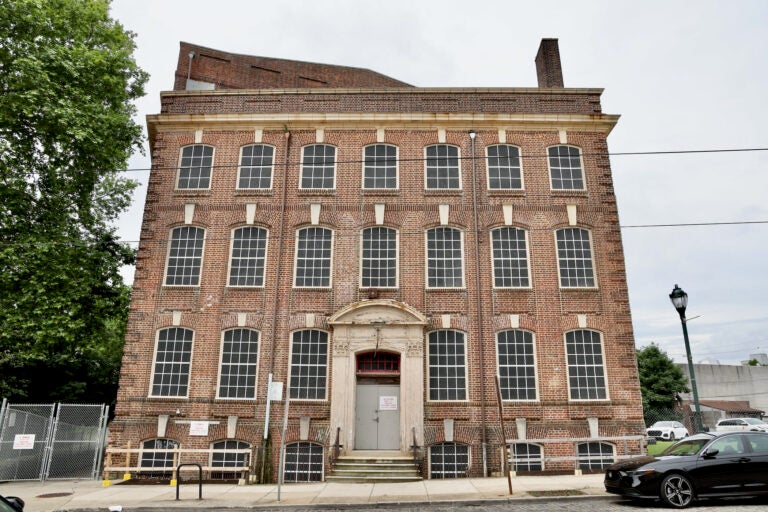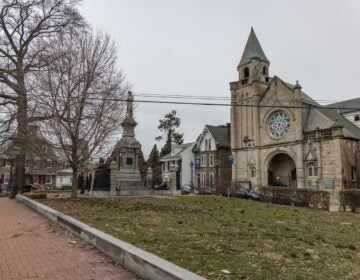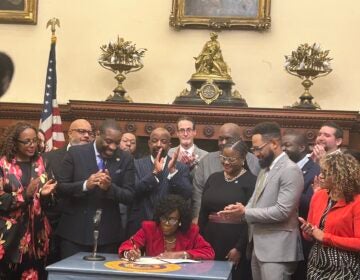The legal battle to save Germantown YWCA represents a rare use of controversial Pa. law
The historic property has sat vacant for nearly 20 years. A real estate developer hopes a judge gives him the opportunity to change that.
Listen 7:13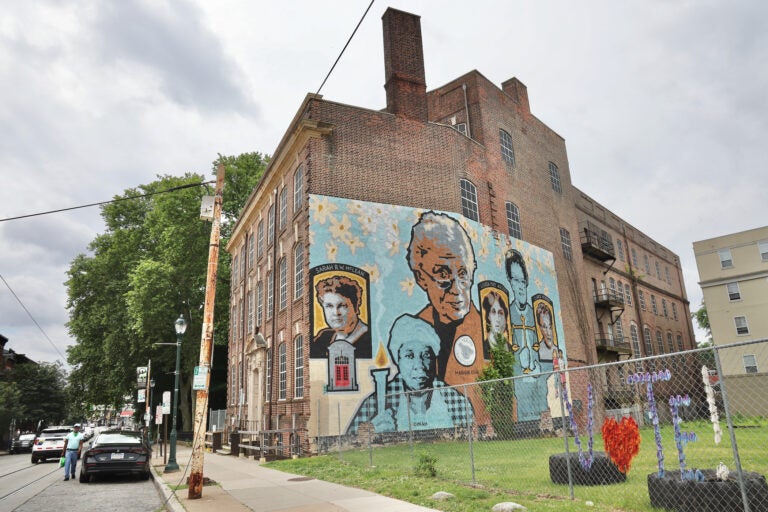
The former Germantown YWCA stands adjacent to Vernon Park in Phiiladelphia's Germantown neighborhood. (Emma Lee/WHYY)
Have a question about Philly’s neighborhoods or the systems that shape them? PlanPhilly reporters want to hear from you! Ask us a question or send us a story idea you think we should cover.
When Rita Storbrauck’s daughter showed her the house she wanted to buy in Bridesburg, the retired realtor had immediate concerns.
She didn’t have issues with the brick twin on Orthodox Street. She thought it was a good fit, especially because it had space for a mother-in-law suite. Storbrauck also liked the neighborhood, a quiet, safe corner of Northeast Philadelphia.
But the dilapidated building next door? She had big problems with it and questioned whether it would be wise to invest in its neighbor.
“How can you buy a house attached to that? It’s a pigsty. You don’t want that,” Storbrauck told her daughter.
When Storbrauck moved in a couple years later, the mixed-use property was still a mess. There were boarded-up doors, sprawling weeds around the perimeter and a busted-in front window on the first floor.
It was also a haven for all kinds of wildlife, with birds constantly flying in and out of the abandoned commercial space.
“We had a rodent problem. We had possums and racoons in our backyard who got into my daughter’s shed in the backyard and destroyed half of her stuff in there,” said Storbrauck.
For five years, Storbrauck tried in vain to do something about the situation. She repeatedly reached out to the city. She talked up elected officials. No one seemed to take her pleas for help seriously.
Nothing changed until Storbrauck connected with a nonprofit now called reBuilding Blocks. With the help of a real estate attorney provided by the organization, and Storbrauck’s testimony, the group took control of the problem property following a lengthy legal battle.
Formerly known as Scioli Turco, reBuilding Blocks has since sold the building to a developer, who started renovations last month.
Storbrauck is thrilled.
“He’s restoring the entire property outside and inside and he’s going to keep it and he’s going to rent it out. So he’s using it. It’s an investment to him,” she said.
A rare case
The building changed hands thanks to a Pennsylvania law enacted well over a decade ago.
Commonly known as Act 135, the measure provides a mechanism for neighbors, nonprofits and municipalities to revitalize abandoned and blighted properties in their communities. The goal is to return these properties to productive use.
Critics in Philadelphia argue the law has unjustly targeted property owners in gentrifying neighborhoods, serving as a change agent for private investors more interested in turning a profit than preserving the neighborhood.
Research out of the University of Pennsylvania found that more than half of the 670 petitions filed in Philadelphia were tied to neighborhoods where residents were at risk of displacement as a result of gentrification — and that Black and Asian property owners were disproportionally impacted by Act 135 petitions.
But backers say the measure has provided relief to hundreds of homeowners in the city who would otherwise have no recourse to deal with problem properties in their neighborhood. That includes homeowners living in fear because they live next door to a crumbling property that could collapse, as well as residents whose property values are taking a hit because of the blight.
“What cannot be ignored are the sufferings of neighbors because of neighbor properties — that’s their generational wealth,” said Beth Grossman, managing director of reBuilding Blocks during a City Council hearing in March.
The overwhelming majority of properties in Act 135 cases are privately owned. Most are residential, like the property next door to Storbrauck.
There’s nothing in the law, however, that prohibits taking this legal action against a building owned by the government.
In Germantown in Northwest Philadelphia, neighbors hope Act 135 can save a crumbling neighborhood landmark owned by the city.
The Germantown YWCA has sat vacant for nearly two decades and is listed on the city’s register of historic places. For more than a century, it was a beloved community anchor. It’s where countless children learned to swim. The social service agency, the first to integrate in Philadelphia, also hosted clubs and classes and at one point served as a vital hub for civil rights.
These days, Renee Cunningham is more focused on the building’s condition. She runs Center in the Park, a senior center that sits directly behind the Germantown Y, and constantly worries about someone getting hurt.
“You can see that the water is just eroding the bricks. The mortar in between the bricks has come loose. In some cases it’s missing. It would be easy to just pick the bricks right out of the wall,” said Cunningham on a recent Saturday morning.
A ‘shameful situation’
In 2016, the Philadelphia Redevelopment Authority selected KBK Enterprises to revitalize the four-story property. But the Ohio-based company is still seeking funding to start work on its $18 million plan to convert the building into affordable apartments and some commercial space.
In the meantime, longtime resident Irv Ackelsberg says the Y remains a symbol of neglect instead of a neighborhood asset — a troubling eyesore weighing down a struggling commercial corridor.
“Isn’t it a shameful situation where a private citizen has to sue the city to get the city to take responsibility for an important historic building that the city owns and has allowed to remain in a vacant, abandoned, nuisance kind of state for a long time,” said Ackelsberg, a member of Friends to Save the Germantown YWCA.
Prominent real estate developer Ken Weinstein is bringing the case against the city, which argues it’s been anything but negligent when it comes to the Y. City Councilmember Cindy Bass, whose district includes the Y, opposes Weinstein’s petition.
If a judge sides with Weinstein, he could become the building’s conservator under Act 135. Such a ruling would enable him to fix up the property and potentially sell it to a new developer. He estimated the building needs about $130,000 worth of exterior upgrades, including roof and brick work, bracing retaining walls, patching holes and scraping and painting window trims.
The scope could expand to include interior work as well.
“This is why Act 135 exists — to bring commercial property owners to the table to force them to do the right thing. It shouldn’t be necessary in the case of the city of Philadelphia. We are taxpayers. The city of Philadelphia should be representing our interests and they’re not in this case,” said Weinstein.
And yet real estate attorney Richard Vanderslice, who is representing Weinstein, doesn’t expect the city will see a flood of Act 135 petitions.
“Is it going to be a one-off? Probably not. Is it going to become common? I don’t think so either. I think when the circumstances are right people will probably use the act to affect change on a historic property or a property that means a lot to the community,” said Vanderslice.
It could be months before a judge makes a ruling in the case.
Before that happens, the city plans to question at least two more witnesses during a hearing scheduled for September.
While testifying last month, PRA chairperson David Thomas, testified that his agency has been a diligent steward of the Germantown YWCA.
“Our interest was always to preserve that building,” said Thomas.

Get daily updates from WHYY News!
WHYY is your source for fact-based, in-depth journalism and information. As a nonprofit organization, we rely on financial support from readers like you. Please give today.




